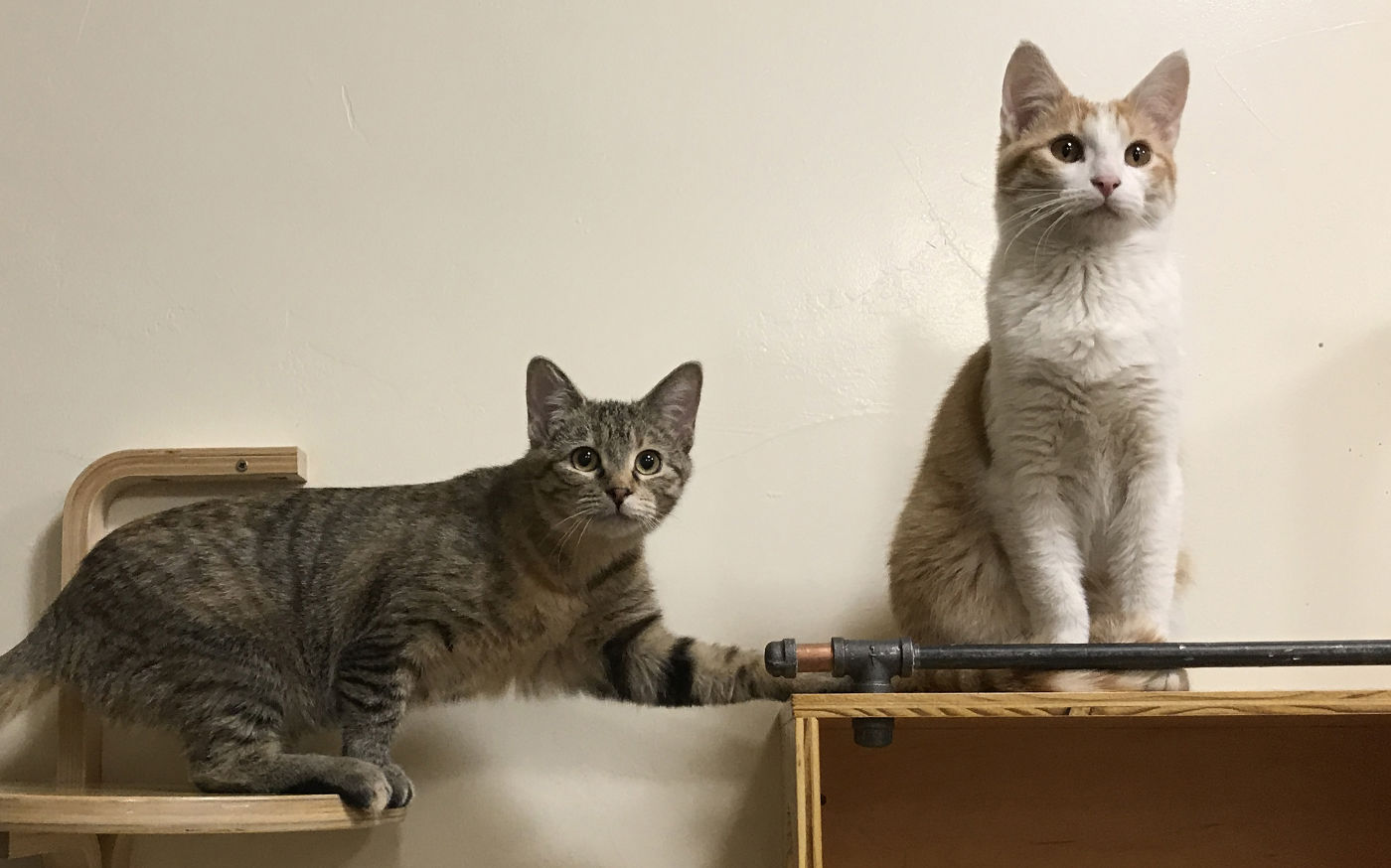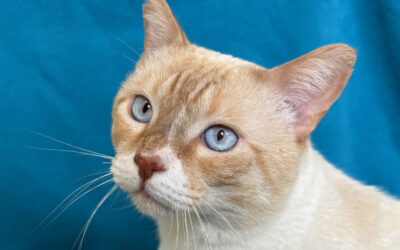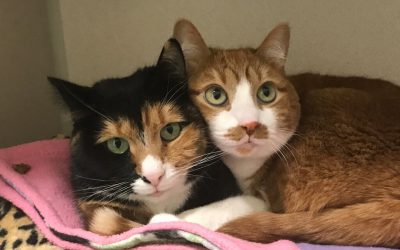Out of the Box – how to resolve simple litter box problems
One of the most common reasons a cat or kitten ends up being abandoned is problems with the litter box, or housesoiling. These issues can become habitual, so it’s important to resolve them as soon as they’re noticed.
Most cats and kittens will instinctively use a litter box. This is reinforced by their mother by the time they find a home. They will look for a convenient place to dig and cover their eliminations when they get to their new home.

If a cat or kitten suddenly starts eliminating someplace other than the litter box, he or she may be ill, anxious or fearful. Cats rarely show pain because their biology teaches them not to in order to avoid predators. Other than crying, this is the only way they have of communicating this with you:
- He could have a physical problem, like a urinary tract infection (UTI), saying Please take me to the vet.
- She could be intimidated by someone in the house, saying Please help me feel safe enough to go where you want me to go.
- He could be uncomfortable with the litter or the box, saying Please find a litter that doesn’t make me sick or a box that doesn’t make me afraid to use it.
Please have your cat checked by your vet immediately if the cat suddenly starts going outside the box. A simple infection can be easily healed before the problem gets too big.
Each time the cat uses somewhere other than the litter box they are establishing a new pattern. It will be important to stop this pattern quickly and to eliminate all odors with an enzyme cleaner to keep the cat from being drawn back to that spot. Do not steam clean, as this will set the odor and make it more difficult to prevent the cat from continuing to eliminate in that area.
For a cat, elimination isn’t just a biological function. It’s also a way to let others in the area know what its territory is. That territory includes not only your house but you, the food, bedding, toys, etc.
Cats need to stake out their territory. If you’re introducing a new cat, this is very important not only to the new cat but the current ones. Changes can create anxiety, especially when they’re dramatic and not introduced slowly.
Urine marking is a territorial issue and may occur if your cat feels that there is a territorial threat from other animals in the house or by animals it sees or smells outside. It most often occurs on vertical surfaces; the cat is creating a boundary or claiming a resource. You need to understand the reason your cat is marking and address those issues to prevent this behavior. There are several methods for addressing marking behavior. Please contact Happy Cats Haven for a referral.
If you put your cat’s litter box in a place where it can eliminate privately but also let other cats know it’s been there, that will probably meet your cat’s needs. If you’ve adopted a kitten, the litter box will need to be very close to where it sleeps so it can find it. A house is a very big place to a tiny kitten!
Most experts recommend one litter box per cat; some recommend one additional. We’ve found that, as long as the boxes are in places that are easily visited, you may be able to get by with less.
We recommend unscented litter. The chemicals used in scenting litter are potentially harmful to your cat, causing chronic sneezing and other issues. If you scoop the box every day, you won’t have need for additional scent cover-ups. Many of the chemicals used in these scents have been proven to be carcinogenic as well as highly allergenic to people as well as cats.
We also recommend open litter boxes for most cats, rather than covered ones. Covered ones may keep your nose from detecting odor longer, but they actually concentrate the odor for your cats, which may not be positive for them.
If your cat is satisfied with its litter or box, try not to change it. If you must for some reason, do so gradually by sprinkling the old litter atop the new and duplicating boxes until the cat gets used to the new one.
If these simple techniques don’t solve your problem, you may need a more in-depth consultation. Please contact us for more information.




